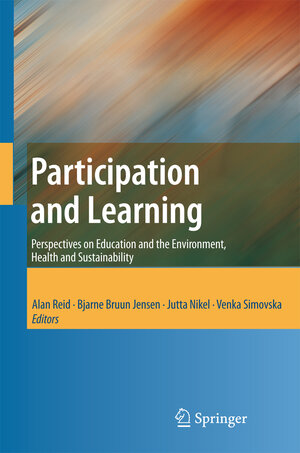
FROM THE REVIEWS
„This is a welcome addition to the literature related to the development of effective
learning in non-traditional contexts, and is put together by an impressive range of
contributors from four continents. And whilst it does offer a wide range of perspectives
on participatory learning in a variety of curriculum areas, these perspectives are
predominantly theoretical and research-based. They testify to an effective and ongoing
collaboration between academics from different backgrounds and disciplines,
which makes for a comprehensive survey of the concepts from different perspectives.“, Alan Peacock, University of Exeter, UK. Environmental Education Research, Vol. 16, No. 2, Month 2010, 1-2 ---------
„This book is of true relevance to teachers, non-governmental organizations and researchers interested in knowing what participation can look like in various contexts where the voices’ of the young are favored. “ Cecilia Lundholm, Stockholm University. Children, Youth and Environments, Vol. 19 No. 1, 2009 ----------
„The book is masterfully organised in a way that scaffolds the reader through a tangle of sometimes conflicting and competing debates played out in different settings with diverse players engaged in attaining a variaty of goals. For some readers the book will be a starting point toward understanding participation learning. For others, the book will serve as a tool for debate and reflection on a crowded playing field with players representing different agendas, some of them hidden. Although the editors ask readers to step outside of their individual bias, some will choose not to. Perhaps some will even us it as a way to sell their particular viewpoints. Others, however, will be compelled to reflect on themselves as participants in learning, and through their experience with this book they will develop an open-mindedness toward honest and careful consideration of what effective participation learning should encompass.“ Marie Cheak, WesternIllinois University, The Journal of Environmental Education, Vol. 39, No. 4, 2008 ----------






